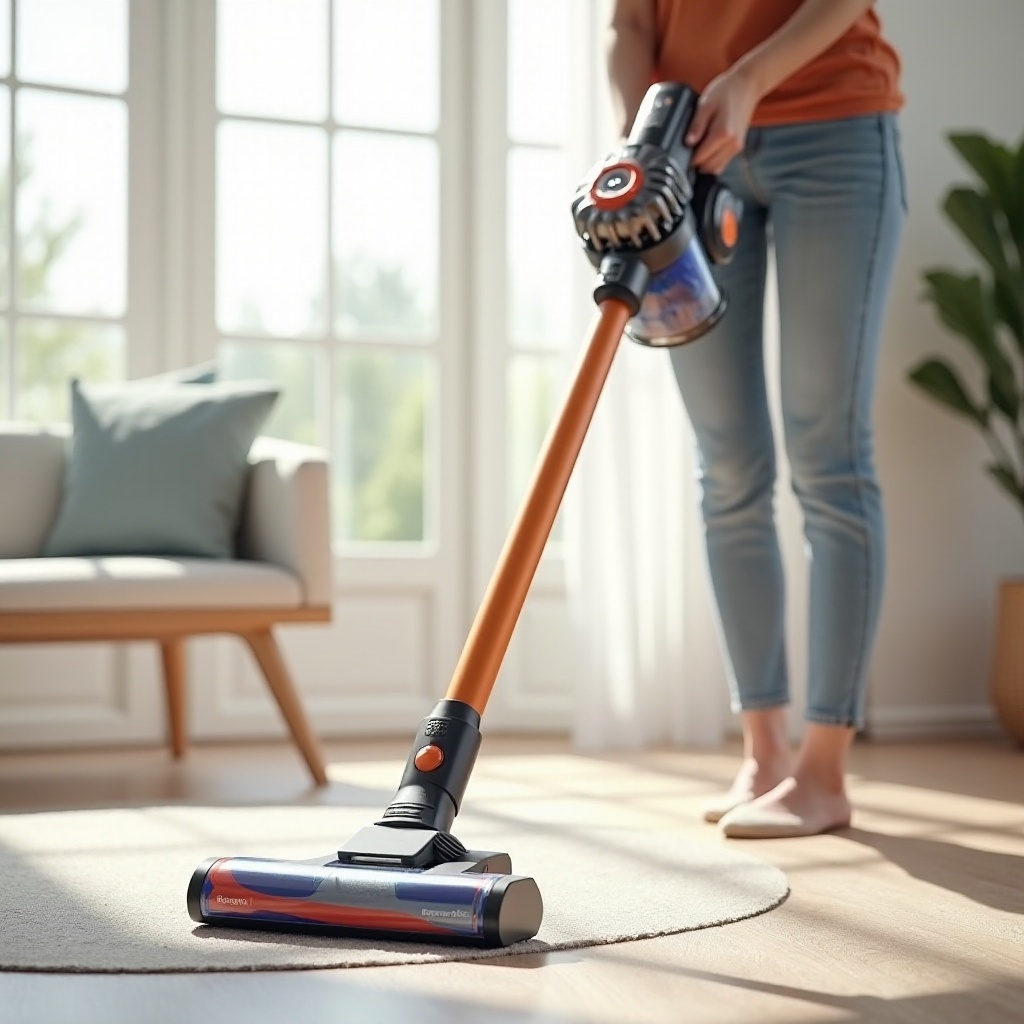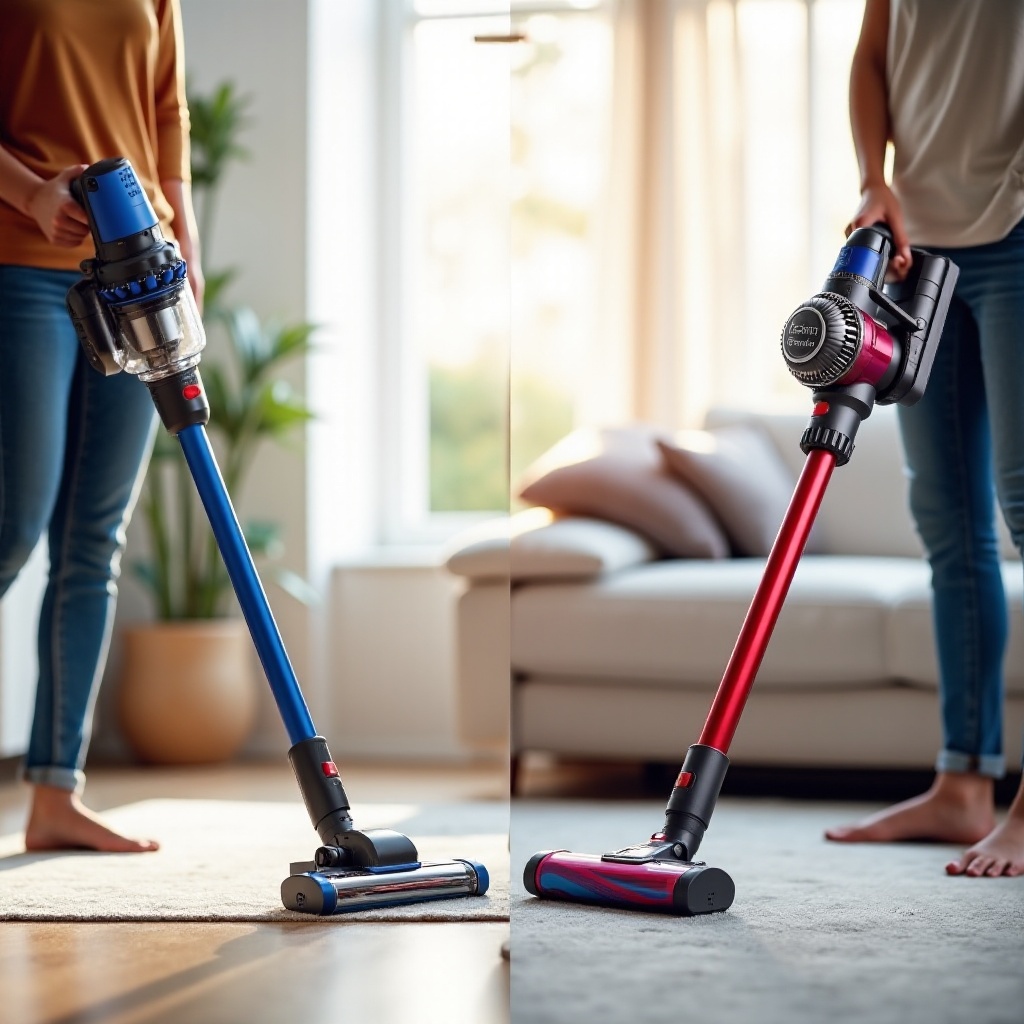Introduction
Cordless vacuums have become increasingly popular due to their convenience and ease of use. However, a common perception persists: are cordless vacuums less powerful than their corded counterparts? This question is crucial for consumers contemplating their next vacuum purchase. Understanding the power dynamics between these two types of vacuum cleaners can aid in making an informed decision. Are potential buyers compromising on cleaning efficiency for the sake of convenience? Let’s delve deeper and find out.

Understanding Vacuum Cleaner Power
Understanding the measurement of vacuum cleaner power is essential to tackling the cordless vs. corded debate. The power of a vacuum cleaner is often indicated by its wattage. Higher wattage generally suggests a more powerful motor, which can convert more electrical energy into suction power. However, other metrics like Air Watts (AW) and suction power (measured in Pascals) can provide a better understanding of cleaning efficacy.
So, how does this translate across different vacuum models?
Corded vacuum cleaners tend to showcase higher wattage ratings, typically ranging anywhere between 1000 to 2000 watts. This substantial power allows for consistently strong suction. On the other hand, cordless vacuums usually offer lower wattage, around 20 to 200 watts, due to battery limitations. Despite this, technological advancements have equipped many cordless models with efficient motors and optimized airflow systems, compensating for the lower wattage.
Technological Advances in Cordless Vacuums
Cordless vacuums have undergone significant enhancements due to continuous improvements in battery technology and motor efficiency. Lithium-ion batteries have been a game-changer in this regard. They provide a higher energy density, longer run times, and quicker charging compared to older battery types.
Moreover, brushless motors have been integrated into many modern cordless vacuum cleaners. These motors are lighter, more efficient, and have longer lifespans than traditional brushed motors. For instance, some brands offer models with ‘digital motors’ that spin at incredibly high RPMs, providing more consistent suction over extended periods.
Additionally, modern cordless vacuums come equipped with smart features like adaptive suction control. This technology allows the vacuum to adjust its suction based on the type of surface being cleaned. Consequently, these innovations have significantly mitigated the power disparity between cordless and corded vacuums.
Cordless vs. Corded: Head-to-Head Comparisons
To fully comprehend whether cordless vacuums are less powerful, comparing them head-to-head with corded vacuums is essential. Several factors come into play: suction power, cleaning efficiency, versatility, and battery life.
-
Suction Power: Corded vacuums generally possess the upper hand. Their power sources allow for stronger and more sustained suction. Cordless models, while improving in this area, may exhibit diminished suction as the battery depletes.
-
Cleaning Efficiency: Both types perform adequately on hard floors. However, corded vacuums tend to outperform cordless ones on thick carpets and rugs due to their consistent power.
-
Versatility: Cordless vacuums excel in versatility and maneuverability. Their lightweight and portable nature make them ideal for cleaning stairs, car interiors, and tight spaces. Corded vacuums, although powerful, can be cumbersome due to their weight and the necessity of plugging into a power source.
-
Battery Life: A critical drawback for cordless vacuums is battery life. Most cordless models provide around 20 to 40 minutes of runtime, which may not suffice for larger homes or prolonged cleaning sessions. Corded vacuums face no such limitations, delivering uninterrupted power.

Practical Performance: Everyday Usage Scenarios
Real-world usage scenarios can provide valuable insights into the true power dynamics of cordless and corded vacuums. Below are common cleaning tasks that will illustrate their strengths and weaknesses.
-
Quick Clean-Ups: Cordless vacuums are ideal for quick spills and spot cleanings. With no cords to plug in, retrieving and using the vacuum is convenient and efficient. This advantage makes them excellent for homes with young children or pets.
-
Whole House Cleaning: For a comprehensive cleaning session, corded vacuums generally prove to be more effective. Their continuous power supply ensures consistent performance, especially in homes with varied flooring types and extensive carpeted areas.
-
Portable Cleaning: Cordless models become indispensable in challenging cleaning scenarios such as vehicles, furniture, and tight corners, where plugging in a cord might be difficult. Their portability allows users to clean without dragging around heavy machinery.
-
Pet Hair Removal: Pet owners often struggle to find a vacuum that effectively deals with pet hair. While some high-end cordless vacuums boast attachments designed for pet hair, corded vacuums often have the edge due to their robust suction and specialized accessories.
By comparing practical performance and utility in everyday scenarios, consumers can better understand which type of vacuum will best meet their needs.
Expert Opinions and Consumer Reviews
Experts and consumer reviews provide real-world evidence of the performance differences and similarities between cordless and corded vacuums. Many experts highlight that cordless vacuums have narrowed the power gap, thanks to technological advancements. However, they still note that for deep cleaning, corded models often perform better.
Consumer reviews showcase a range of opinions. Some users love the convenience of cordless models for regular, quick cleaning, while others stick to corded vacuums for their reliability in heavy-duty cleaning tasks.

Conclusion
The debate over whether cordless vacuums are less powerful hinges on various aspects including technological advancements, usage scenarios, and personal preferences. While corded vacuums still hold a slight edge in pure suction power, cordless vacuums have significantly transformed, erasing many of the previous performance gaps. For consumers, the choice ultimately depends on the balance between power needs and convenience.
Frequently Asked Questions
Do cordless vacuums lose suction power over time?
Cordless vacuums can lose suction power as their battery depletes or as the battery ages over time. Regular maintenance, such as cleaning filters and emptying dustbins, can help maintain optimal performance. Investing in higher-end models can also mitigate this issue due to better battery management systems.
Can cordless vacuums handle pet hair and thick carpets effectively?
Some cordless vacuums are specifically designed to handle pet hair and thick carpets. These models often come with motorized brush rolls and specialized attachments. However, for consistent and intensive pet hair removal, corded vacuums might still be more effective due to their higher suction power.
What are the benefits of cordless vacuums over corded ones?
Cordless vacuums excel in convenience and portability. They are easier to maneuver, making them perfect for quick clean-ups, reaching tight spaces, and cleaning in areas without easily accessible power outlets. Their lightweight nature reduces the physical strain, providing a more user-friendly cleaning experience.
